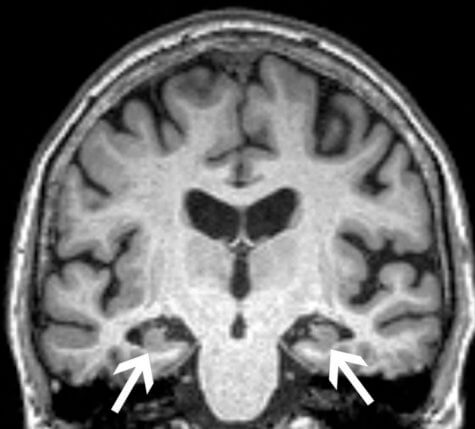OAK BROOK, Ill. — Anxious thoughts and feelings can take a terrible toll on one’s quality of life and mental health. Now, a new study finds anxiety may also cause mild cognitive decline to turn into full blown Alzheimer’s disease faster.
This research, performed at the Medical University of South Carolina, is set to be presented at the 2020 meeting of the Radiological Society of North America (RSNA).
Alzheimer’s is an awful neurodegenerative disease characterized by memory loss, confusion, and in extreme cases, the loss of one’s very identity. Making matters worse, global deaths attributed to Alzheimer’s have more than doubled since 2000. As of today, Alzheimer’s is the fifth most common cause of death in the United States among adults over 65.
For a large portion of patients, Alzheimer’s develops slowly at first. Many Alzheimer’s patients experience mild cognitive impairment before the symptoms eventually worsen and become more extreme. Notably, many adults dealing with cognitive impairment also report elevated feelings of anxiety.
“We know that volume loss in certain areas of the brain is a factor that predicts progression to Alzheimer’s disease,” says study senior author Maria Vittoria Spampinato, M.D., professor of radiology at the Medical University of South Carolina (MUSC), in an RSNA release. “In this study, we wanted to see if anxiety had an effect on brain structure, or if the effect of anxiety was independent from brain structure in favoring the progression of disease.”
Anxiety is a separate cause of dementia?

A total of 339 people with an average age of 72 took part in this research. All the participants had been initially diagnosed with mild cognitive impairment, with 72 eventually developing Alzheimer’s and 267 remaining stable.
Researchers collected brain MRIs from each person to establish baseline readings for both hippocampus and entorhinal cortex volume. Both of those brain regions are essential for memory function. Other tests also searched each senior for ApoE4 allele, the top gene associated with Alzheimer’s. Finally, the study gauged participants’ anxiety levels using clinical surveys.
In line with modern medicine’s understanding of the disease, patients who went on to develop Alzheimer’s showed lower volumes in the hippocampus and the entorhinal cortex, as well as more ApoE4 allele genes.
Interestingly, however, study authors find anxiety has an independent link to cognition problems.
“Mild cognitive impairment patients with anxiety symptoms developed Alzheimer’s disease faster than individuals without anxiety, independently of whether they had a genetic risk factor for Alzheimer’s disease or brain volume loss,” says study first author Jenny L. Ulber, a medical student at MUSC.
Mental health screenings may help spot warning signs
Researchers say this discovery opens the door for new ways of identifying cognitively impaired patients at an elevated risk of rapid Alzheimer’s progression.
“We need to better understand the association between anxiety disorders and cognitive decline,” Dr. Spampinato comments. “We don’t know yet if the anxiety is a symptom–in other words, their memory is getting worse and they become anxious–or if anxiety contributes to cognitive decline. If we were able in the future to find that anxiety is actually causing progression, then we should more aggressively screen for anxiety disorders in the elderly.”
“The geriatric population is routinely screened for depression in many hospitals, but perhaps this vulnerable population should also be assessed for anxiety disorders,” Ulber adds. “Middle-aged and elderly individuals with high level of anxiety may benefit from intervention, whether it be pharmacological or cognitive behavioral therapy, with the goal of slowing cognitive decline.”
Since this study focused on one round of MRIs, researchers hope future studies will perform a follow-up MRI on patients. This will facilitate a more through understanding of the connection between anxiety and dementia.
“We’re now interested in looking at changes over time to see if anxiety has an effect one way or the other on how fast the brain damage progresses,” Dr. Spampinato concludes. “We will also take a closer look at gender differences in the association between anxiety and cognitive decline.”
